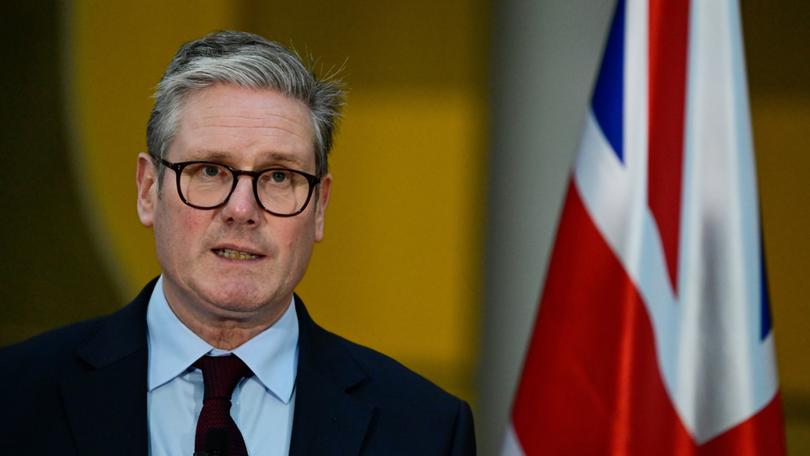Ukraine-Russia peace talks: UK Prime Minister Sir Keir Starmer willing to send troops in with ‘US backstop’
Sir Keir Starmer is considering sending UK troops to deter Ukraine-Russia conflict, however, will only do so with a ‘US backstop’, as European leaders emerge from emergency meetings without a solution.

Emergency talks with leaders from Europe appear to have not found a tangible solution to the ongoing Ukraine-Russian war, with UK Prime Minister Sir Keir Starmer now considering sending troops in for peacemaking if the US comes to the table.
Shortly before the meeting, French President Emmanuel Macron spoke with US President Donald Trump, but Macron’s office would not disclose details about the 20-minute discussion.
Leaders of Germany, the United Kingdom, Italy, Poland, Spain, the Netherlands, Denmark and the European Union met at the Elysee Palace for talks on Europe’s security quandary. NATO Secretary General Mark Rutte was also there.
Sign up to The Nightly's newsletters.
Get the first look at the digital newspaper, curated daily stories and breaking headlines delivered to your inbox.
By continuing you agree to our Terms and Privacy Policy.Sir Starmer said on Monday that there must be a US security commitment for European countries to send postwar peacekeeping forces to Ukraine and it was too early to say how many British troops he would be willing to deploy.
“Europe must play its role, and I’m prepared to consider committing British forces on the ground alongside others, if there is a lasting peace agreement, but there must be a US backstop, because a US security guarantee is the only way to effectively deter Russia from attacking Ukraine again,” Sir Starmer told reporters.
Shortly before the meeting, French President Emmanuel Macron spoke with US President Donald Trump, but Macron’s office would not disclose details about the 20-minute discussion.
Macron last year refused to rule out sending Western troops into Ukraine if necessary.
Polish Prime Minister Donald Tusk has said his country would not send troops to Ukraine.
“We do not plan to send Polish soldiers to the territory of Ukraine. We will ... give logistical and political support to the countries that will possibly want to provide such guarantees in the future, such physical guarantees,” he said.
German Chancellor Olaf Scholz told reporters a possible peace agreement with Russia cannot be forced on Ukraine from outside.
“We welcome the fact that talks are taking place, that peace is developing everywhere. But for us it must and is clear: this does not mean that peace can be dictated and that Ukraine must accept what is presented to it,” he insisted after he left the Elysee Palace.
Yet, Mr Scholz said it was too soon to talk about boots on the ground.
“It is completely premature and completely the wrong time to have this discussion now. I’m even a little irritated by these debates,” Mr Scholz said. Peace talks “have not taken place and ... Ukraine has not said yes and has not sat at the table.
“This is highly inappropriate, to put it bluntly and honestly: we don’t even know what the outcome will be,” he added.
Asked about troops on the ground, Denmark’s Prime Minister Mette Frederiksen: “We are open to discussing many things”.
US not giving all European leaders seat at the negotiating table
Since last week, top US officials from the Trump administration, on their first visit to Europe, left the impression that Washington was ready to embrace the Kremlin while it cold-shouldered many of its age-old European allies.
Keith Kellogg, US President Donald Trump’s special envoy for Ukraine and Russia, underlined Monday that Europe has no place at the negotiating table.
“All their concerns will be known, and addressed as well,” Mr Kellogg told reporters in Brussels, where he briefed the 31 US allies in NATO, along with European Union officials, before heading to Kyiv for talks on Wednesday with Ukrainian President Volodymyr Zelensky.
“I don’t think it’s reasonable and feasible to have everybody sitting at the table. We know how that can turn out and that has been our point, is keeping it clean and fast as we can,” he said.
Mr Kellogg’s remarks come after a flurry of speeches by Vice President JD Vance and Defence Secretary Pete Hegseth last week questioned both Europe’s security commitments and its fundamental democratic principles.
- With Reuters
